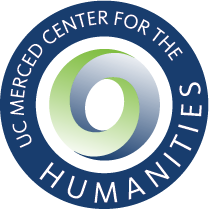
Dr. Maryam Kia-Keating is an Associate Professor of Clinical Psychology in the UCSB Department of Counseling, Clinical, and School Psychology and a Licensed Clinical Psychologist. She received her A.B. from Dartmouth College, Ed.M. from Harvard University in Risk and Prevention, and Ph.D. from Boston University in Clinical Psychology. Dr. Kia-Keating completed her predoctoral clinical internship at the University of California, San Diego/VA Healthcare Systems. As a postdoctoral scholar at the University of California, San Diego she was the Clinical Director of a school-based secondary prevention program. Dr. Kia-Keating’s research has been funded by NICHD, NIMH, and NIAAA. She focuses her work around coping and resilience in the context of experiences of trauma, stress, and adversity, particularly for vulnerable and ethnic minority populations, and in order to best inform prevention and intervention efforts. She served on the American Psychological Association Task Force on the Psychosocial Effects of War on Children and Families who are Refugees from Armed Conflict Residing in the United States. She is currently the Principal Investigator of a NICHD-funded grant focused on using community-based participatory research to reduce disparities and address violence exposure for Latino youth. She is a consulting editor for Child Development.
I have an expertise in traumatic stressors such as victimization, exposure to violence, war, disasters, and other adversities, and the factors that impact individuals and communities in their psychological recovery processes. My research focuses on resilience, in other words, how some people and some communities bounce back after exposure to such challenging events. I consider risk factors, as well as protective and promotive factors, using a social-ecological perspective in order to take into consideration the complexity and transactional nature of real life. Understanding elements that help to buffer or mediate risk and potential mental health outcomes helps to inform the development of prevention and intervention programs that can help provide scaffolding for youth, families, and communities facing trauma and adversities. I have a particular expertise in the study of immigrant and refugee communities. I use community-based participatory research (CBPR) methods to both attend to problems and risks, as well as to better understand healthy development and resilience, from a community’s own perspective. The translational components of my research focus on school, clinical, and community-based practice, including locations where barriers to service access can be diminished, and diverse groups can be better served.













